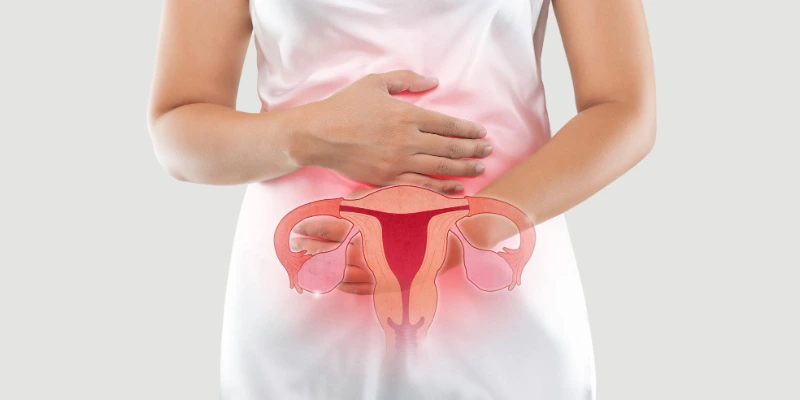Does PCOS Always Lead To Infertility? Exploring Treatment Options
PCOS or polycystic ovary syndrome is one of the most prevalent hormonal disorders in women who are of reproductive age. Although it is most often associated with fertility problems, is PCOS always infertile? No; but the connection between PCOS and conceiving is complicated.
This blog explores the connection between PCOS and fertility, busts myths, highlights treatment options, and shares how the Best Doctors For PCOS Treatment, like Dr. Archana Agarwal, can support women on their journey to motherhood.
What Exactly is PCOS?
PCOS (Polycystic Ovary Syndrome) happens to be a hormonal disorder, which affects the ovaries and reproductive health. It comes about when the reproductive hormones are out of balance due to above amounts of androgens (male hormone) being produced by the ovaries.
Characteristic phenomena of PCOS are:
- Disturbed or missing menstrual period
- Excess levels of androgen that causes acne or facial hair
- Large poly-cystic ovaries with many immature follicles
- Infertility ovulatory
All women with PCOS will not have all these symptoms. The signs may be mild or severe in some individuals compared to others with plethora of hormonal imbalances and metabolic complications.
Why Does PCOS Affect Fertility?
The predominant factor that causes PCOS to affect fertility is irregular ovulation. Egg development becomes abnormal or does not occur on a schedule and in many women, this means that natural conception is unlikely.
- Hormonal imbalance: There is an increased level of androgen and insulin resistance that alters ovulation.
- Inferior egg quality: Hopefully the eggs will not develop normally in PCOS.
- Endometrial problems: The lining of the uterus may not build up in relation to the ovulation and this interferes with implantation.
- Metabolic disorders: Insulin resistance, obesity also have the ability to further aggravate reproductive conditions.
Does PCOS Always Lead to Infertility?
This is the reality: PCOS does not mean infertility. Most women with PCOS conceive without medical aid or with little aid.
- Approximately 50% of women with PCOS become pregnant after one year of attempting to do so.
- The commonest cause of infertility due to anovulation is POCS, but this is only a temporary or functional infertility.
- Most of the women with proper management by way of lifestyle changes or medications, and/or assisted reproductive technologies, end up successfully conceiving.
Key takeaway: PCOS may make conceiving more challenging, but it is not a life sentence of infertility.
Common Symptoms That Affect Reproductive Health
Women with PCOS often report:
- Irregular or absent periods
- Difficulty conceiving despite regular attempts
- Acne, oily skin, or excessive hair growth
- Weight gain, especially around the abdomen
- Thinning scalp hair
- Fatigue and mood swings
Early recognition of these signs can help women consult the Best Doctors For PCOS Treatment and improve both fertility outcomes and long-term health.
Suggest to Read :- 5 Gynaecological Symptoms You Should Not Ignore
Treatment Options: Step-by-Step Approach
Managing PCOS and restoring fertility requires a personalised, multi-pronged approach.
-
Lifestyle Modifications
Lifestyle changes are the first and often most effective line of treatment:
- Diet: A balanced diet with lean proteins, whole grains, and low-GI foods helps regulate insulin levels.
- Exercise: Regular workouts improve insulin sensitivity, hormonal balance, and ovulation.
- Weight management: Even a 5–10% reduction in body weight can restore menstrual cycles and improve fertility.
2. Medications for Ovulation Induction
|
Medication |
Role & Effectiveness |
|
Letrozole (Femara) |
First-line medication; improves live birth and pregnancy rates more effectively than clomiphene. |
|
Clomiphene citrate (Clomid) |
Stimulates ovulation; widely used but slightly less effective than letrozole. |
|
Metformin |
Improves insulin resistance; useful when combined with ovulation drugs. |
3. Hormonal Support
Some women may require hormonal therapy to regulate cycles and support ovulation.
4. Surgical Interventions
For women who do not respond to medications:
- Laparoscopic Ovarian Drilling (LOD): Creates tiny punctures in the ovary, helping restore ovulation.
5. Assisted Reproductive Technologies (ART)
- Intrauterine Insemination (IUI): Helps in mild cases of infertility.
- In Vitro Fertilisation (IVF): Highly effective option with success rates of 60–70% in PCOS women, especially when combined with careful ovarian stimulation protocols.
When to Seek Expert Help
If you have irregular cycles, signs of hormonal imbalance, or have been trying to conceive without success for over 6–12 months, it’s time to consult a specialist.
For women searching for the Best Doctors For PCOS Treatment, one trusted name stands out:
- Dr. Archana Agarwal – With vast experience in reproductive medicine and women’s health, Dr. Agarwal provides comprehensive care for PCOS management and fertility enhancement. Her personalised, compassionate approach ensures women receive the right treatment at the right time, improving both reproductive outcomes and overall well-being.
Final Thoughts
While PCOS can complicate the path to motherhood, it does not close the door on your dreams of having a baby. With proper diagnosis, lifestyle interventions, medical support, and the guidance of an expert, women with PCOS can and do conceive healthy pregnancies.
If you’re struggling with PCOS symptoms or fertility concerns, don’t wait. Reach out to Dr. Archana Agarwal, one of the Best Doctors For PCOS Treatment, and take the first step toward a healthier future and a happier family journey.

